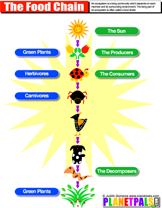When looked at through various lenses, the more complete idea surrounding the fable is revealed, disclosing a more complex message than the simple enjoyable bedtime story could ever seem to hold.
For example, viewed in regards to Carroll's personal life, the questions of eros and religion become prominent, for Carroll's adoration for little girls and the church were prominent in his life. Knowing this, the character of Alice, who is based on a child Carroll knew, suddenly takes on a different light. She is not just a fragment of the imagination, but a real girl, combining Carroll's reality with the fictional world through the looking glass. It brings a sense of possible reality, or at least a connection between reality and imagination, to the other world.
Another element of the story that interested me was the idea that everyone is "edible." In general, I would say that objects are personified to give them a sense of life and superiority over other beings and objects. However, Carroll does this differently. Everything is brought to life so that everything is not necessarily "equal," but at least on the same level of being. It is then, because there are no overbearing stratification, that everything is dispensable. Even Alice, a human being, is told by the unicorn, "If you'll believe in me, I'll believe in you." The tables seem to be turned, an animal, and not just any animal, but a fictional animal, is telling a human he will only believe in her if she first believes in him. The rational food chain no longer exists; everyone is on the same level.
Dr. Sexson made the comment that a child is a fabulous monster. This struck me, and I have not been able to stop thinking about it. Though I have yet to reach any concrete solution, the first thing that always pops into my mind is Max from the book and movie Where the Wild Things Are.
Max is a fabulous monster, and not because he dresses up in his costume and lives among monsters, but because he is a child who we cannot fully anticipate or understand. The word "monster" has such a negative connotation, but, according to Merriam-Webster, a monster can also be one who deviates from normal behavior, and another definition is one who is highly successful. I believe both of these apply to children, and these definitions are often tied together in children. Kids are prone to do what they want, whether or not it is the social norm or even socially acceptable. However, it is often because of their individuality and creativity that they find success. I think back to Max, and how while most people create fantasy worlds full of rainbows and castles, his world is full of beasts, and it is here he finds success in the form of finding a place he belongs and can call home.
Children often have not yet conformed to societal norms, which would cause them to be monsters. And yet they are fabulous in that they use this monstrosity to be creative and insightful and be truly happy and content in the irrational. In the end, even though I do not fully understand it, I have already fallen in love with the term fabulous monster, and believe children manifest its meaning quite perfectly.

No comments:
Post a Comment